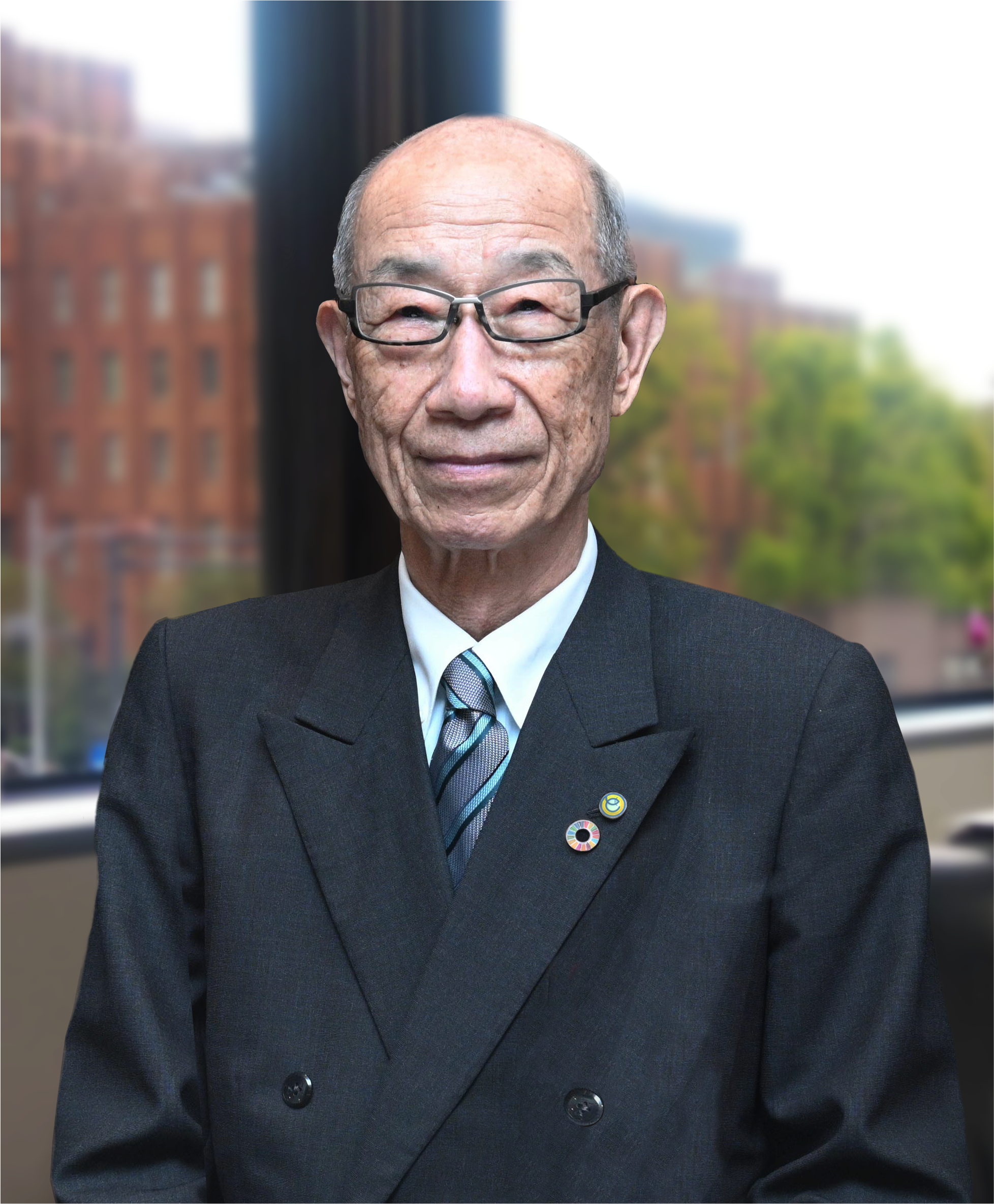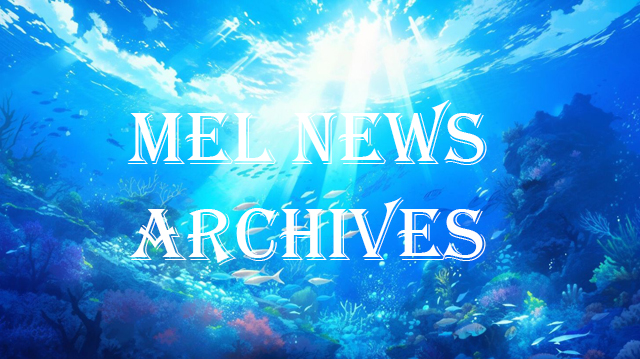Message from the President

It is my pleasure to extend a warm welcome on behalf of the Marine Eco-Label (MEL) Japan Council. I am Naoya Kakizoe, President of the Council, and I sincerely appreciate your interest in our program. As I begin my ninth year in this role as President of MEL Japan, I would like to extend our heartfelt gratitude for your longstanding and gracious guidance and support for MEL. At the same time, we would like to take this opportunity to provide you with an update as our program evolves.
The foundation of MEL Japan traces back to 2005, when the Fisheries Department of the Food and Agriculture Organization (FAO) of the United Nations adopted its “Guidelines for the Ecolabeling of Fish and Fishery Products from Marine Capture Fisheries”. In response, the Japan Fisheries Association launched the Marine Eco-Label Japan in 2007. Later, in 2016, with a vision of ensuring that sustainably sourced foods from Japan would be served at the Tokyo 2020 Olympic and Paralympic Games, then just four years away, and of achieving international recognition to support the expansion of seafood exports, the current Marine Eco-Label Japan Council embarked on a new chapter pursuing the mission of establishing its certification program as an internationally standardized system. The revised “Fisheries Basic Plan for Fisheries” of 2017 by the Government of Japan reinforced this new mission by adopting a nation policy to promote seafood ecolabeling. Since that time, MEL Japan has played a significant and meaningful role in advancing Japan’s national fisheries strategy.
Initially, the concept of seafood ecolabeling in Japan was met with skepticism, perceived as not aligned with the country’s cultural and social context. Over time, it has progressively gained widespread acceptance across society, evolving into an indispensable system for promoting the sustainable utilization of marine resources. In addition to the fundamental mission of conserving marine ecosystems and protecting fisheries resources, seafood ecolabeling has begun to evolve toward satisfying increasing demands to fulfill an even higher level of social responsibility, specifically by addressing challenges such as climate change adaptation, human rights infringements, marine plastic reduction, ensuring food safety, enhancing supply chain transparency, and promoting animal welfare, among others. In response to these diverse societal demands and the increasingly multifaceted nature of seafood ecolabeling activities worldwide, MEL continues to strengthen trust not only within Japan but globally, by its foundational alignment with FAO guidelines, Global Benchmark Tool of GSSI (Global Sustainable Seafood Initiative), and ISO (International Organization for Standardization) specifications.
As global warming continues unabated, “food security” has emerged as a pressing issue for all humankind. While abnormal heatwaves, droughts, and torrential rains are recurring on a global scale across land-based regions, seafood, supported mainly by the advancement of aquaculture, is drawing increasing attention as a vital food source for sustaining humanity’s future. In light of these growing expectations, MEL is actively working in collaboration with stakeholders to develop certification standards for aquaculture feed, – a cornerstone of aquaculture development – to ensure the sustainability of both the feed itself and its material inputs, fishmeal and fish oil.
The realization of MEL’s vision, “A Japan-originated, internationally recognized Eco-Label”, is steadily advancing, supported by the sincere efforts of its stakeholders. MEL continues to advocate globally for the unique characteristics of Japan’s seafood industry, which has been cultivated and nurtured through the collaborative efforts of government, academia, and business, and is deeply rooted in the country’s abundant natural environment and profound cultural heritage. In addition, MEL’s initiatives are closely aligned with Japan’s national policy of enhancing the growth of the seafood industry through the conservation and restoration of marine resources.
For seafood to continue to serve humanity’s future food and livelihood, it is essential to sustain the seafood industry itself, as well as maintain the environment and resources. MEL’s seafood ecolabel is a “Bridge of Trust” between producers and consumers – a vital infrastructure supporting a sustainable society. By promising the ultimate traceability, linking production and consumption, it is an invaluable tool for enhancing “social trust and recognition” for businesses. For consumers, it provides a sense of pride for participating in actions that secure a sustainable future for humanity.
The MEL Council continues to inform stakeholders about MEL through various events, print media, and social media platforms, while the broader distribution of products bearing the MEL logo in stores, online shops, and restaurants brings MEL closer to the public.
The seafood industry is a domain in which Japan has been and must continue to be a global leader. As the scheme owner of “A Japan-initiated, internationally recognized Eco-Label,” the MEL Council stands at the forefront in championing Japan’s national interests and industrial vitality, while also striving to be a leader in advancing the realization of a sustainable global seafood industry. In this endeavor, we continue our unwavering commitment to work closely with all stakeholders for the growth and progress of seafood sustainability.
The world now finds itself in an era of intense and unpredictable turbulence. Navigating this ever-shifting global landscape, MEL Japan aspires – together with all of you – to build a sustainable society through the power of our “Oceans and Seafood”.
Sincerely yours,
Naoya Kakizoe
President of Marine Eco-Label Japan Council
April 2025
Corporate Profile
| Name | MEL(Marine Eco-Label Japan) Council |
|---|---|
| Established | December 2, 2016 |
| Address | 3rd floor Nittochi-Uchisaiwaicho Bldg., 1-2-1, Uchisaiwai-cho, Chiyoda-ku, Tokyo, 100-0011 Japan |
| Tel/Fax | +81-3-6257-1002 / +81-3-6257-1003 |
| info@melj.jp |
Organization and Major Regulations
*Organization Chart of MEL Council
*Statutes of MEL Council
*Membership Regulations
*List of Board Members 2023
*List of Standard Setting Committee_Members
*List of Members 2023
*Operational Management Regulations(OMR)
*Detailed Rules of OMR
*Guideline for Establishment of Standard Setting Committee
*MEL Annual Report_FY2021
*Regulation Objection Complaint Appeal MEL 20210701
*Forms Objection Complaint Appeal MEL 20210701
Please submit to the MEL Council (by post, email, or fax ) shown as “Inquiries”at the bottom right.
*Supervisory Audit Regulations
*Information Disclosure Regulations
*Regulations_Logo

